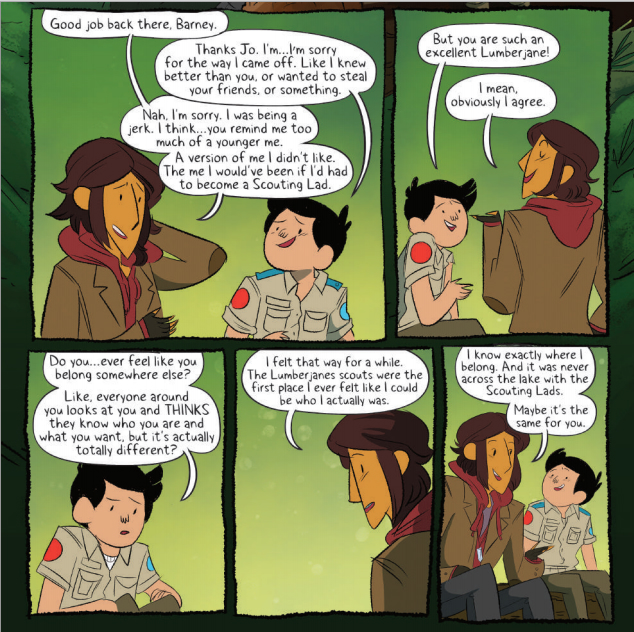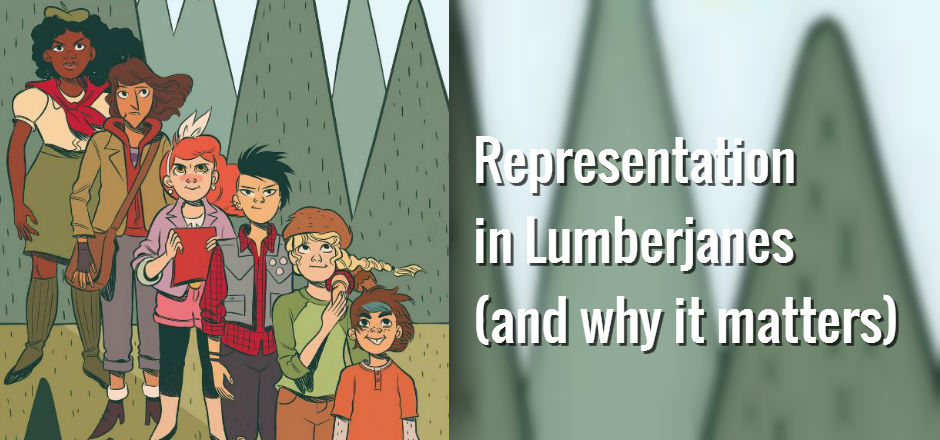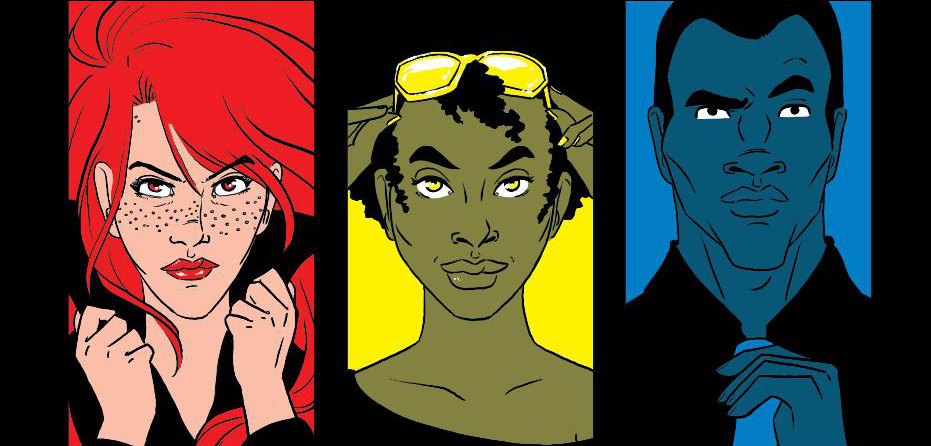I wish Lumberjanes had been around in my teenage years. It’s a book that I want to save for my future daughter, to explain to her, “Look, you’re a badass and perfect just the way you are. You can do anything you want, and your true friends will love you for it.”
The series, which takes place at Miss Quinzella Thiskwin Penniquiqul Thistle Crumpet’s Camp for Girls Hardcore Lady Types, tells the story of five scouts (affectionately referred to as Lumberjanes), April, Molly, Mal, Jo, and Ripley, and their often supernatural adventures at the camp. From battling three-eyed foxes and befriending old women who turn into bears to trying to patch things up between dueling mermaids who used to be best friends, it’s clear that this isn’t your average summer camp.
Despite the supernatural elements in the story, I think the reason it works so well and is so relatable is because all of the characters are rooted in reality. The campers and counselors are all different, reflecting the fact that real people are all different. Issue 13, for example, is devoted entirely to the families of each of the campers, and there’s no one family that’s the same—Jo has two dads, Ripley comes from mixed-race parents, and April (presumably) comes from a single-parent home.
In addition to their diverse families, the girls also have varied interests outside of protecting their camp from the supernatural. April and Jo are best friends who are obsessed with crafting and robotics, respectively, but the stigma of “a tomboy can’t be friends with a girly-girl” and vice-versa is refreshingly absent from their relationship. Despite her rough, “don’t mess with me” appearance, Mal is actually the most sensitive and cautious member of the group, proving the age-old “don’t judge a book by its cover” adage to be true.
But the series doesn’t stop there.
In a world overrun with queerbaiting and the fetishization of sexualities, the creators of Lumberjanes are taking matters into their own hands. It all started with an inkling of Mal and Molly having feelings for each other—the giggles and brushing hands and blushing, and eventually, their relationship became canon.
In addition to Mal and Molly’s relationship, there had been speculation among fans that Jo was transgender. In issue 17 the creators finally made it canon, and fans were overjoyed. After spending so long following shows and series that constantly play around with subtext for ratings without committing to anything (looking at you, Supernatural), it was great to finally have concrete proof that yes, this character is trans.

Panel from Lumberjanes #17.
But here’s the thing that’s so important about how Lumberjanes handles it all: there’s no fanfare. No gasps from the characters of something like, “You’re gaaaaay?” or “Jo, you used to be a boy?” There’s just awareness and acceptance, plain and simple, just like it should be outside of the comic book panels.
In an effort to push back (and generally just be rude and immature, it seems like), people challenge the idea of why representation is so important, especially in media. I was able to see the Lumberjanes panel at New York Comic-Con last year, and it was one of the most welcoming panels I’ve ever experienced—someone asked if all of us sitting outside of a room were waiting for the Lumberjanes panel, and a woman replied with an excited, “Yes! Welcome to the camp!” The panel answered the question of the importance of representation.
Brooke Allen, the series’ regular artist and one of the co-creators, relayed a story to us early on in the panel about a mother who had visited their booth earlier in the day. She had explained to Allen that her young daughter is queer and usually struggles with telling people and talking about it. However, the creators of Lumberjanes inspired her to feel comfortable with herself and talk about it with more regularity. Allen was so visibly touched by it while recounting the story for us, and it seemed to be one of the highlights of the con for everyone in attendance at the panel. That small interaction proves all the naysayers wrong—representation does matter, and the women behind Lumberjanes deserve all the praise and accolades they’re receiving with this book.
This is a series created by girls for girls, but doesn’t shame guys who want to join in on the adventures, too. There’s definitely still a long way to go, but we’re lucky to have Lumberjanes, and with the rise of other female-driven titles with queer characters in comics, we’re moving in the right direction.
—
Allison Racicot is the Audiobook Reviewer at Girls in Capes. She spends too much time listening to podcasts and getting overly attached to fictional characters. Follow her on Twitter @allisonracicot.


![[GUEST] Fashion in CATWOMAN and THE WICKED + THE DIVINE](https://girlsincapes.com/wp-content/uploads/2015/09/guest-comics-fashion.jpg)



